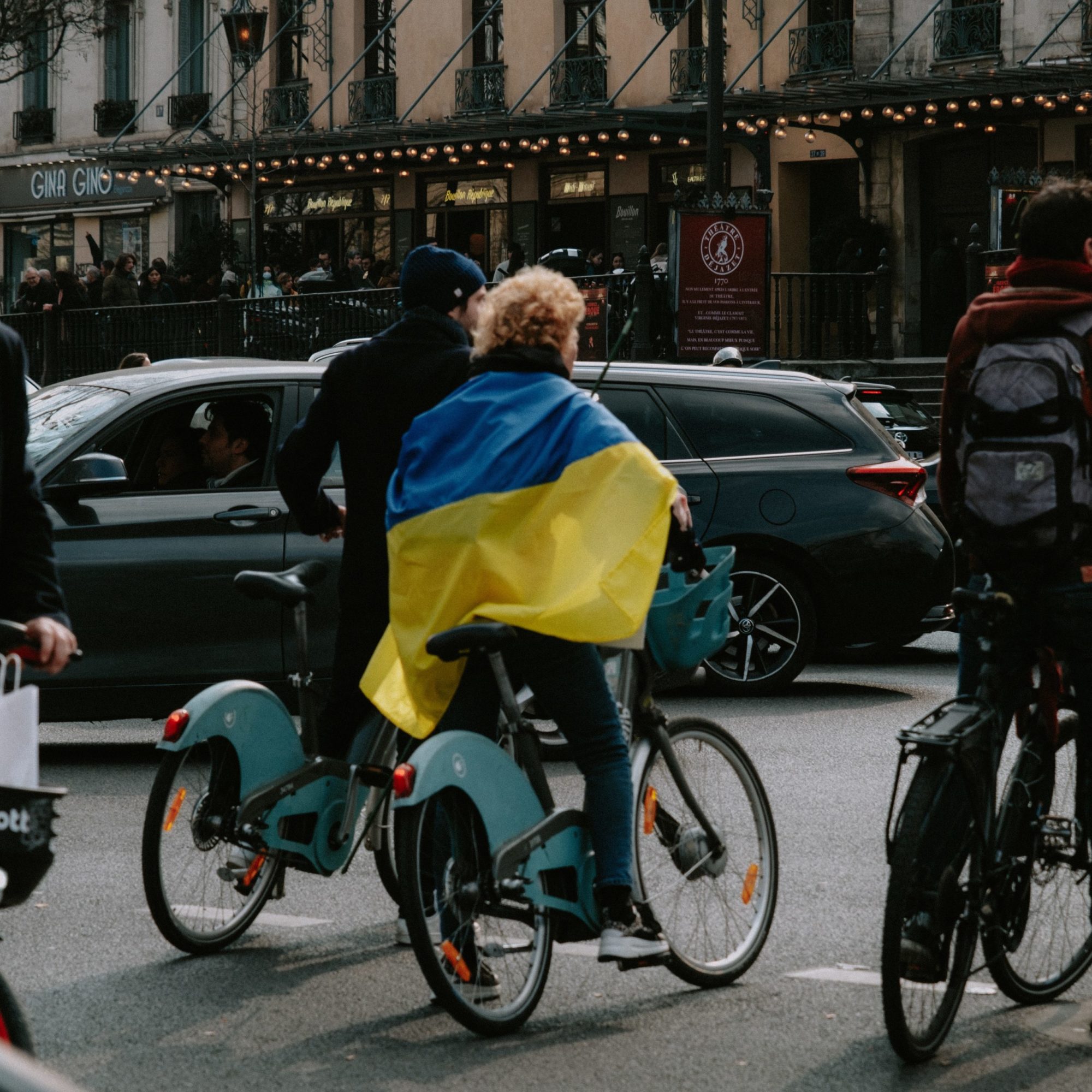It appears that Russian aggression in Ukraine has taken extensive notes from the western playbook. Russia’s indiscriminate attacks that have jeopardized the safety of Ukraine’s nuclear power plants, its willingness to consider “sharing” its nuclear weapons with Belarus, and its ability to caricature the UN Security Council with false justifications, all point to one underlying fact: International law has been persistently weakened by exemptions.
Exemptions have facilitated imperialist excursions of the US and its western allies, justifying the utilitarian narrative of preserving international peace and security while doing the exact opposite. These very exemptions now appear to be lucrative loopholes that further enable Russian hooliganism in Ukraine. Unfortunately, the global nuclear order has also suffered from these exemptions.
WHERE ARE THE LAWS?
Russia’s recent attacks on Ukrainian nuclear power plants at Chernobyl and Zaporizhzhia raised global concerns about the sheer callousness of Russia putting the entirety of Europe at risk of radioactive fallout, all because of President Vladimir Putin’s sickening and deluded ambitions to see through his “special military operation.” The Financial Times declared that this was “the first time in history that an active atomic facility has been targeted.” The US Embassy in Ukraine declared: “It is a war crime to attack a nuclear power plant. Putin’s shelling of Europe’s largest nuclear plant takes his reign of terror one step further.” These reactions were warranted, given the scale and gravity of the dangers posed by attacks on nuclear facilities.
Exemptions have facilitated imperialist excursions of the US and its western allies, justifying the utilitarian narrative of preserving international peace and security while doing the exact opposite.
Russia’s attacks on Ukrainian nuclear facilities were not unprecedented — and this is because Ukraine is not the first instance where a state sponsored kinetic attack on nuclear power plants and nuclear research facilities has been conducted. Although few, a number of states have carried out attacks on completed and operational nuclear power plants and research facilities, including the US, Iraq, Israel, and now Russia. In 1980, Iran bombed an Iraqi nuclear research facility. In 1981, Israel attacked the Osirak reactor in Iraq, and then attacked what many believe to have been a nuclear reactor in Syria, in 2007. From 1984 to 1988, Iraq launched seven attacks on Iran’s Bushehr reactors. In 1991, the US attacked nuclear research reactors in Iraq.
Yet, upon realizing the grave dangers posed by attacks on nuclear facilities, and with over 40 years to develop more specific restrictions on such attacks, we find ourselves in a situation where little has been done to criminalize further attacks on nuclear power plants. We find experts not entirely certain about where the US stands in relation to the professed “war crime” of attacking nuclear infrastructure. We find experts only now asking the question: Why are there not any explicit laws that protect nuclear facilities from military attacks?
The answer lies in the international community hiding behind the exemption of “counterproliferation” to enable (or otherwise ignore) the imperialist ambitions of the US and its allies in far-away places. One must also grapple with the fact that when the perpetrators of these attacks are “distant” countries in the Middle East, the repercussions of such attacks on civilian populations are incapable of arousing sympathetic imperatives to consider the protection of “blue-eyed, blonde-haired” civilians from the potential radioactive exposures that might accompany such attacks.
There was some expressed outrage at the targeting of civilian nuclear infrastructure in the past. For example, in 1981 the US supported UN Security Council resolution 487 condemning Israel for its attack on an Iraqi reactor (the US carried out subsequent attacks on the nuclear installation 10 years later and that was not followed by a UNSC resolution). Perhaps Russia’s recent attacks on Ukrainian nuclear facilities might finally serve as the catalyst for more stringent international criminalization of this issue that goes beyond loosely worded resolutions and provisions, such as Article 56 of Protocol I to the Geneva conventions.
THE HYPOCRISY OF THE UN VETO
We have recently become more comfortable with discussing how Russia’s reliance on conventional superiority and a nuclear arsenal enables it to violate the territorial sovereignty and self-determination of Ukrainians with impunity. In this regard, we have seen Russia abuse its privileged role in the UNSC to veto a resolution denouncing its invasion of Ukraine, thereby making the UNSC incapable of denouncing the violation of a peoples’ sovereignty and self-determination.
Though followed by near-universal condemnation of its decision to use its veto power, Russia’s vote struck a sensitive nerve with the US delegation, with the US Ambassador to the UN Linda Thomas Greenfield telling the Russian delegation: “You can veto this resolution but you cannot veto our voices…you cannot veto the truth. You cannot veto our principles. You cannot veto the Ukrainian people. You cannot veto the UN charter.”
Yet, Russia’s use of its veto power should not be something the US should be surprised by, especially since its own actions in the UNSC have set a precedent for such abuse of power. The US has used its veto power at least 53 times, such as to stifle UNSC condemnation of the Israeli occupation of Palestine, and together with France, threatened to veto any UNSC resolution using the word “genocide” during Rwanda’s civil war in 1994.
Another exemption of importance within the UNSC context, has been Russia’s willingness to caricature the council with false justifications for its invasion of Ukraine. Earlier this month, Russia began a campaign in the UNSC to level retrospective and baseless claims, accusing the US and Ukraine of developing bioweapons. To be clear, Russia’s current claims are ridiculous. On the basis of “evidence” presented by the Russian government, it is difficult for anyone to arrive at the same conclusion as the Russians. Instead, this Russian charade indicates a clear detachment from reality, and one would assume that at the very least, the government might hold the UNSC in sufficient esteem to spare the council the embarrassment of having to entertain such ludicrousness. But Russia’s desperation to find justification for its aggression should not be so easily dismissed. After all, this desperation also has historical precedents which we must recognize; in 2003, the US also abused its political standing in the UNSC to level baseless accusations as pretext for its invasion of Iraq.
NUCLEAR SHARING
Nuclear sharing is another problematic “exemption.” The recent constitutional developments in Belarus, following its “referendum” to give up its non-nuclear status are also raising concerns about Russia’s ability to deploy its nuclear weapons in Belarus, which is a non-nuclear armed state. Such a deployment would amount to Russia and Belarus engaging in an illegal nuclear sharing arrangement.
According to Article I of the Nuclear Non-Proliferation Treaty (NPT):
“Each nuclear-weapon State Party to the Treaty undertakes not to transfer to any recipient whatsoever nuclear weapons or other nuclear explosive devices or control over such weapons or explosive devices directly or indirectly…”
And Article II reads:
“Each non-nuclear-weapon State Party to the Treaty undertakes not to receive the transfer from any transferor whatsoever of nuclear weapons or other nuclear explosive devices or of control over such weapons or explosive devices directly, or indirectly…“
On the basis of these texts, both Russia and Belarus would be in contravention of their NPT treaty obligations if such a deployment of Russian nuclear weapons were to occur. Unfortunately, however, Russia might seek to rely on precedents made by the US that will have dire consequences for the stability of the nuclear nonproliferation order. Nuclear sharing is an area of significant contestation amongst state parties to the NPT. Despite the clarity of the NPT’s provisions, there is no consensus regarding the legality of such a practice under Articles I and II because of exemptions sought by the US and NATO.
The US and NATO both have continued to reject any interpretations of the NPT that suggests that there is a conflict between the practice of nuclear sharing and the obligations contained in NPT Articles I and II. This is because the US and five non-nuclear members of NATO have concluded bilateral programs of cooperation, which allows the deployment of US nuclear weapons in their territories. These countries — Germany, Belgium, The Netherlands, Italy and Turkey — host roughly over 100 tactical nuclear bombs in their territories, combined. Thus the US and NATO have pushed for interpretations of the NPT that in effect, grants an exemption to the illegality of nuclear sharing when it concerns them.
This exemption has been met with occasional resistance throughout the duration of the treaty. For example, during the 1997 NPT Preparatory Conference (PrepCom) meeting, Russia, Belarus and China broached the subject of nuclear sharing, reiterating South Africa’s calls for NWS to recall all nuclear weapons deployed outside their borders. However, after much wrangling by states to obtain a clear US interpretation regarding the legality of nuclear sharing given the provisions of the NPT, the US essentially circumscribed the applicability of the treaty, by arguing that the transfer and control of nuclear weapons does not occur until wartime, when they consider the NPT to no longer apply. This has led to the entrenchment of the US understanding that the applicability of the NPT ceases in the event of a “general war.”
What constitutes a “general war” is also subject to some controversy, if we consider Russia’s nuclear status. In 1968 Dean Rusk gave an explanation of an example of a conflict that would not relieve signatories of their NPT compliance. He stated that: “At the other extreme [i.e. not a ‘general war’] would be a limited, local conflict, not involving a nuclear weapon-state. In this case the treaty would remain in force.” One can easily see how this explanation of the US stance might be unsettling, given that Russia, as a nuclear weapons state, a depositary state of the NPT, and given its initiation of a war that can hardly be described as a “local conflict,” could potentially justify the suspension of its obligations under the NPT. This cannot be entirely ruled out, because we should now understand that as long as an interpretation of international law that enables greater freedom of action for Russia exists, there is the possibility that they will seek to adopt such an interpretation for their own purposes.
EXEMPTIONS HAVE CREATED INSTABILITY
The bottom line is, Russian aggression in Ukraine has, in part, benefitted from the persistent weakening of international law, facilitated by exemptions made to serve western imperialism and its various excursions. Whether or not Russia actually needs historical precedent to justify its current carnage is a question only the Kremlin can answer. What I can say for certain, though, is that the international community in enabling US and western imperialism in the past, is responsible for the weaknesses which now enable Russian tyranny in the present.
It is clear that the inconsistent thresholds of applicability and accountability are embedded in international law, and hegemons and rogues take advantage of them. The reality is that exemptions allow all actors to ignore the law, when it suits their interests. Therefore, systematically eliminating these encoded exceptions and inconsistencies is in our collective best interest, as we would be foolish to expect that we can swiftly rectify these inconsistencies if and only when they impact those “who look like us.”
Olamide Samuel is a research associate in Nuclear Politics at the University of Leicester.





















